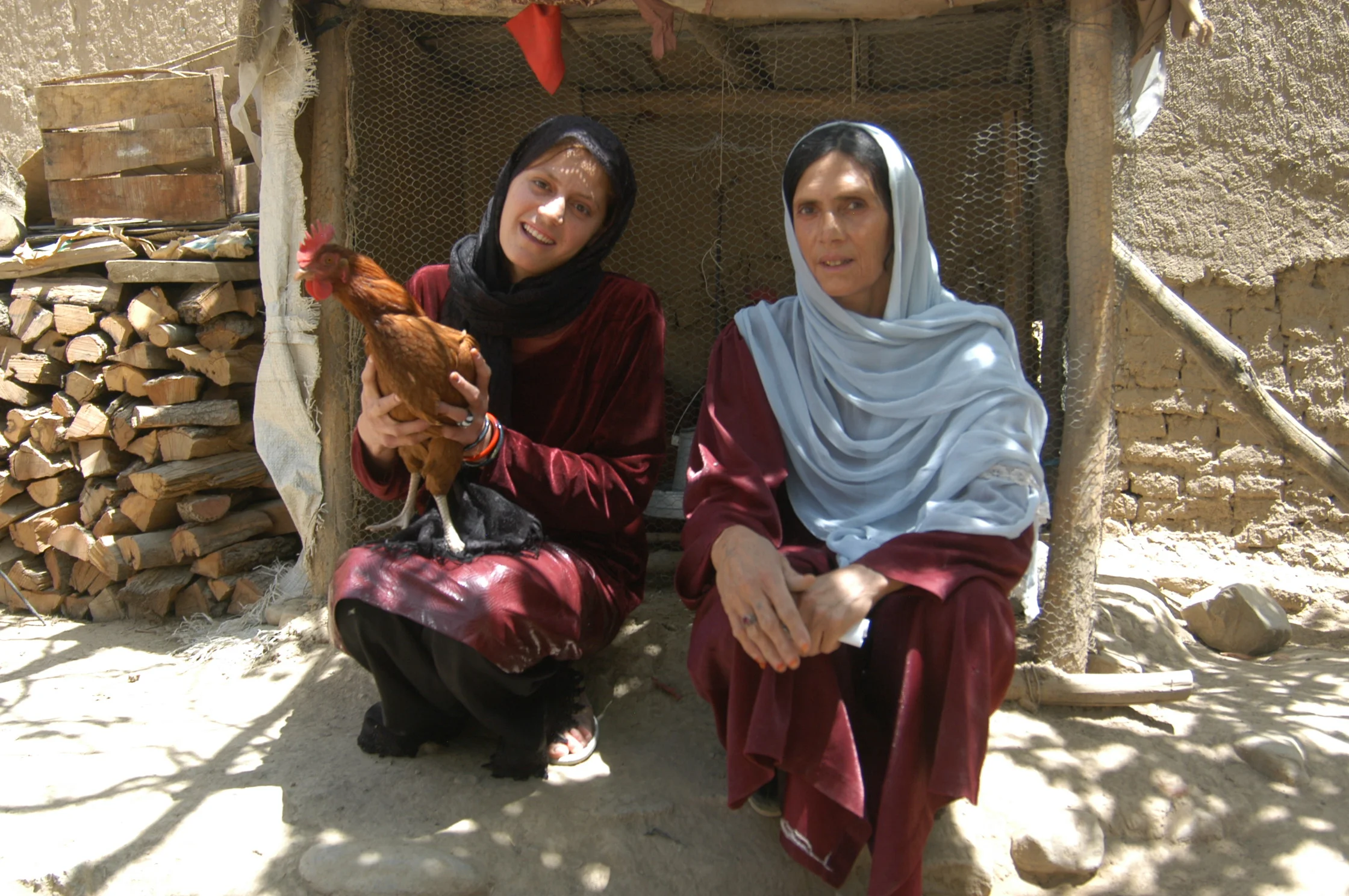Our Work
Beyond the 11th is a humanitarian organization that partners with international aid groups to provide job training and economic opportunity to Afghan widows.
These forgotten women are at the bottom of Afghan society. Without a husband, they lose all rights.
When their husbands die, widows can be evicted from their homes. Have their children taken away by their in-laws. Or be forced to live on the streets, where they are easy prey to physical and sexual violence.
There is no social safety net to catch them.
The skills they learn in our programs are critical not just to their independence and dignity, but their survival.
How We Began
Beyond the 11th was started in 2003 by two American women whose husbands were killed in the terrorist attacks of September 11, 2001. Susan Retik, President of the foundation, was 7-months pregnant with her third child. Patti Quigley, who served three years before stepping down in 2006, was 8-months pregnant with her second child. The foundation was born out of their radical response to hate – compassion. Even as she was reeling from her own loss, Susan felt a connection to Afghan widows, whose plight was all over the media. She was deeply troubled by the disparity between their destitution and the support she and Patti received as “9/11 widows.”
Susan set herself a simple goal: Help just one.
Many years later, Beyond the 11th has helped thousands. Not just widows, but their children too.
What We Do
Working closely with our NGO partners, Beyond the 11th develops programs tailored specifically to the needs of widows. Widows attend literacy and numeracy classes. They receive materials and training to start small businesses. And they learn how to form Community-based Savings Groups (CBSGs), to pool their earnings and lend to each other for essentials like school and medical fees.
With self-reliance and the warmth of community comes hope.
Fariba had been living in isolation when she started attending Savings Group meetings with her mother-in-law. She treasured the chance to learn and grow in the company of other women.
She says, “The CBSG released me from seclusion.”
Graduates of our programs have started many life-sustaining businesses:
Raising and selling eggs in their neighborhoods
Managing dairy cows and selling the milk
Creating and selling intricate embroidered textiles
Hand-stitching soccer balls for sale around the world
Creating one of a kind knotted rugs, distributed by Arzu
Why It Matters
Ten years ago the Pulitzer prize-winning New York Times journalists Nicholas Kristof and Cheryl WuDunn wrote a call to action called Half the Sky. They observed that in every new century the modern world has faced an urgent moral dilemma.
In the 19th century it was the call to end slavery. In the 20th it was the battle against totalitarianism. The critical moral imperative of the 21st century, they said, is to end the oppression of the world’s women.
The worst place to be a woman is the most crucial place to make a difference.
The case for championing women’s rights in Afghanistan cannot be overstated. According to Time magazine (Dec. 8, 2018), Afghanistan still ranks as the worst place in the world to be a woman. After decades of war, terrorism and insurgency, women and children still suffer disproportionately. While the needs are great, our programs are working.
“The record suggests that schools and economic initiatives…chip away at fundamentalism...”



